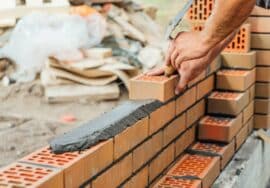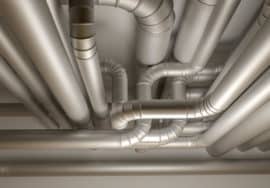
What is an Electrical Estimator and Why is it Important in Construction?
Electrical estimators play a critical role in the construction industry by providing accurate and reliable cost estimates for electrical projects. From designing and planning to installation and maintenance, electrical estimators help ensure that projects are completed on time and within budget. In this article, we will explore the world of electrical estimators and why they are essential in the construction industry.
Introduction
In construction, electrical estimators are responsible for estimating the cost of electrical projects. This includes everything from designing and planning to installation and maintenance. Accurate cost estimation is essential in ensuring that projects are completed on time and within budget. Electrical estimators work closely with other professionals, such as architects, engineers, and project managers, to develop project plans and budgets.
What is an Electrical Estimator?
An electrical estimator is a professional who is responsible for estimating the cost of electrical projects. This includes calculating the cost of materials, labor, equipment, and other expenses required for the completion of a project.
Duties and Responsibilities
An electrical estimator’s duties and responsibilities include:
- Analyzing project plans and specifications to understand the scope of work
- Estimating the cost of materials, labor, and equipment
- Preparing and submitting bids to clients
- Coordinating with other professionals, such as architects and engineers, to develop project plans and budgets
- Developing project schedules and timelines
- Managing project budgets and expenses
- Conducting site visits to assess project progress and identify potential issues
Skills Required
Electrical estimators require a combination of technical and soft skills, including:
- Knowledge of electrical systems and equipment
- Strong mathematical skills
- Attention to detail
- Excellent communication skills
- Strong organizational skills
- Ability to work under pressure
- Knowledge of project management principles
- Proficiency in computer software, such as Microsoft Excel and estimating software
Why is an Electrical Estimator Important in Construction?
Accurate Project Cost Estimation
One of the most critical roles of an electrical estimator is to provide accurate cost estimates for electrical projects. This includes calculating the cost of materials, labor, and equipment required for the project. Accurate cost estimation is essential in ensuring that the project is completed on time and within budget.
Maximizing Profitability
Electrical estimators also play a crucial role in maximizing profitability for construction companies. By accurately estimating project costs, they can ensure that projects are completed within budget, minimizing the risk of cost overruns.
Project Planning and Management
Electrical estimators work closely with other professionals, such as architects, engineers, and project managers, to develop project plans and budgets. They help ensure that the project is completed on time and within budget by developing project schedules and timelines.
Quality Control
Electrical estimators also play a critical role in ensuring the quality of electrical projects. By accurately estimating project costs, they can ensure that the appropriate materials and equipment are used for the project, and that the work is completed to the required standards.
How to Become an Electrical Estimator
Education and Training
To become an electrical estimator, you typically need a bachelor’s degree in electrical engineering or a related field. However, some employers may accept candidates with a two-year degree or relevant work experience.
Electrical estimators should also have knowledge of electrical systems and equipment, as well as strong mathematical skills. They may also need to be proficient in computer software, such as Microsoft Excel and estimating software.
Certification
Certification is not required to become an electrical estimator, but it may be preferred by some employers. The American Society of Professional Estimators offers certification programs for construction estimators, including electrical estimators.
Relevant Skills and Experience
Relevant skills and experience for electrical estimators may include:
- Knowledge of electrical systems and equipment
- Strong mathematical skills
- Proficiency in computer software, such as Microsoft Excel and estimating software
- Excellent communication skills
- Strong organizational skills
- Ability to work under pressure
- Knowledge of project management principles
Future Outlook for Electrical Estimators
The demand for electrical estimators is expected to grow in the coming years as construction activity increases. According to the Bureau of Labor Statistics, employment of cost estimators, including electrical estimators, is projected to grow 11% from 2020 to 2030, which is faster than the average for all occupations.
Conclusion
In conclusion, electrical estimators play a vital role in the construction industry by providing accurate cost estimates for electrical projects. They help ensure that projects are completed on time and within budget, maximizing profitability for construction companies. Becoming an electrical estimator typically requires a bachelor’s degree in electrical engineering or a related field, as well as strong mathematical skills and proficiency in computer software.
If you require electrical estimation services, contact our company Bids Estimating. Our team of experienced electrical estimators can provide accurate and reliable cost estimates for your electrical projects. We are dedicated to ensuring that your project is completed on time and within budget, maximizing profitability for your company. Contact us today to learn more about our services and how we can help you with your electrical estimation needs.
FAQs
What is an electrical estimator?
An electrical estimator is a professional who is responsible for estimating the cost of electrical projects.
What are the duties and responsibilities of an electrical estimator?
An electrical estimator’s duties and responsibilities include reviewing project plans, calculating the cost of materials, labor, and equipment, preparing and submitting bids to clients, and managing project budgets and expenses.
What skills are required to become an electrical estimator?
Electrical estimators require a combination of technical and soft skills, including knowledge of electrical systems and equipment, strong mathematical skills, attention to detail, and excellent communication skills.
Is certification required to become an electrical estimator?
Certification is not required to become an electrical estimator, but it may be preferred by some employers.
What is the future outlook for electrical estimators?
The demand for electrical estimators is expected to grow in the coming years as construction activity increases.











